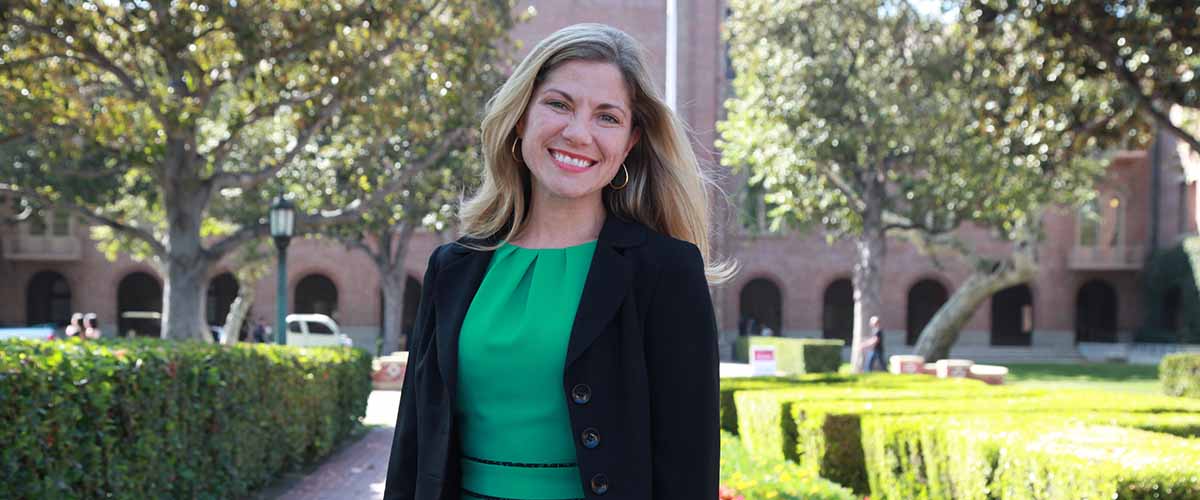
Changing the face of STEM PhD programs
Pullias’ Julie Posselt leads research in 24-campus effort to increase diversity in physics and astronomy
A new $5 million grant from the National Science Foundation aims to dramatically increase diversity in physics and astronomy.
Called the Cal-Bridge program, the project creates a pathway for students from underrepresented groups at 15 California State University campuses to PhD programs in physics and astronomy at nine University of California campuses. Launched four years ago, the program has already had a national impact on the number of students from underrepresented groups graduating with a physics degree and matriculating to PhD programs in physics or astronomy. The new grant allows Cal-Bridge to expand from about a dozen scholars per year in southern California universities to as many as 50 statewide.
Julie Posselt, an assistant professor of higher education at USC Rossier and faculty member of the Pullias Center for Higher Education, will conduct research on the networks and partnerships developed and enhanced through the Cal-Bridge program to support equity in and access to graduate education. The project is an opportunity to test a theory that Posselt developed about how graduate admissions decisions are often based on networks of trust that connect individuals and institutions.
“This project is a rare opportunity to examine how students come to trust institutions as desirable places to earn a PhD and how faculty in PhD programs come to trust Cal State Universities as desirable places for undergraduate training in these fields,” said Posselt. “Cal-Bridge has a distinctive model of CSU and UC partnerships that makes this possible.”
Currently, students from underrepresented minority groups represent 30 percent of the U.S. population but less than 4 percent of physics and astronomy PhDs awarded nationwide. The national average of underrepresented minorities earning a PhD in these fields is about 80 per year.
Cal-Bridge scholars are recruited from the 15 CSU campuses and more than 30 community colleges in the Cal-Bridge network, with the help of local faculty and staff liaisons at each campus. Led by principal investigator and director Alexander Rudolph, a Cal Poly Pomona professor of physics and astronomy, Cal-Bridge has been highly successful in developing a pipeline of highly diverse, qualified scholars, many of whom have already successfully begun or been accepted to attend PhD programs in physics or astronomy at top programs nationally, including UC Irvine, UC Santa Barbara, Harvard University, Northwestern University, the University of Maryland, Michigan State University and Penn State University.
In her research role, Posselt will examine the networks of graduate program application, admission and enrollment that emerge through the Cal-Bridge program. She’ll also study how partnerships between minority- or Hispanic-serving institutions and research universities may affect graduate school admissions and contribute to diversity efforts in participating departments.
The grant runs until 2023.